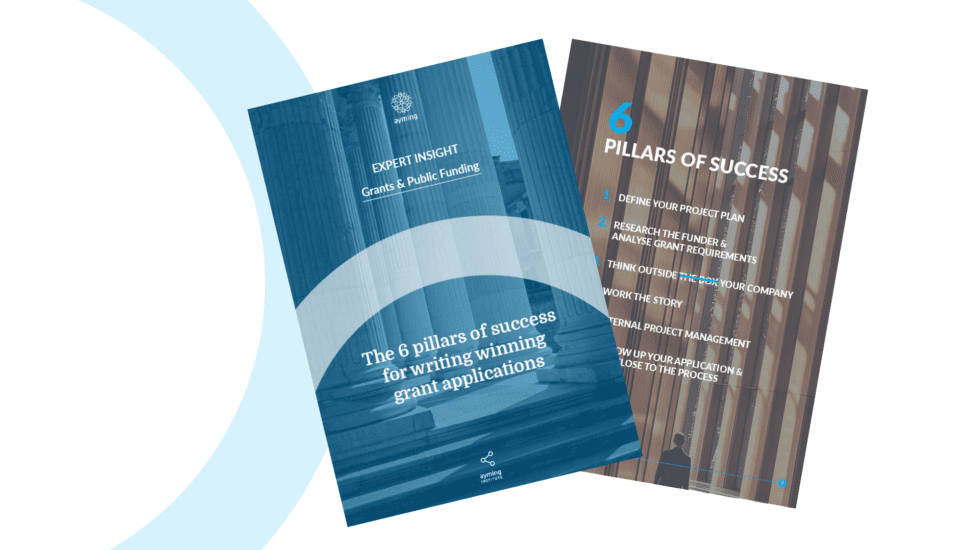
Ayming's Perspective
Relief Opportunities for Canadian Businesses in light of COVID-19
The Canadian government at both the provincial level and federal level has unveiled new measures to directly support Canadians and the economy as we battle this global pandemic. These measures have been put in place to provide relief for Canadians and businesses who have been impacted by COVID-19. Due to a skyrocketing demand, there is a strong focus to aid Canadian manufacturers who are scaling up and retooling their production lines to support the production of medical supplies and other critical medical equipment. These are unprecedented times, and our team of grant and tax experts are closely monitoring all government announcements in order to stay up to date with all relevant and vital funding information. As part of our ongoing commitment to our clients, we will be providing regular updates on any new announcements or funding updates throughout these difficult times.
It is important for all Canadian businesses to stay on top of this ever evolving and fluid situation in order to mitigate risks and respond accordingly, which is why Ayming’s experts has identified some pertinent financing and support information below:
Business Financing Options
The government of Canada has implemented financing measures in order to support agri-businesses, via the below organizations:
Farm Credit Canada
To ensure producers, agribusinesses and food processors can remain focused on business-critical functions rather than worrying about how to access funds to keep operating through this challenging period, effective immediately, FCC has put in place:
- a deferral of principal and interest payments up to six months for existing loans; or
- a deferral of principal payments up to 12 months
- access to an additional credit line up to $500,000, secured by general security agreements or universal movable hypothec (Québec only)
Business Development Canada
Business Development Canada, Canada’s bank for entrepreneurs, has announced additional measures to provide relief to business owners impacted by the spread of COVID-19, as follows:
- Working capital loans of up to $2 million with flexible repayment terms such as principal postponements for qualifying businesses;
- Reduced rates on new eligible loans;
- Flexible repayment terms, such as postponement of principal payments for up to 6 months, for existing BDC clients with total BDC loan commitment of $1 million or less;
- Canada Emergency Business Account – Interest-free loans of up to $40,000 to small businesses and not-for-profits, to help cover their operating costs during a period where their revenues have been temporarily reduced.
Export Development Canada
Effective March 24, 2020, EDC is stepping up to support all exporting companies by offering their bank a guarantee on loans of up to $5M so that companies can access more cash immediately
Canada Emergency Business Account
A new loan program, that will be implemented rapidly by eligible financial institutions in cooperation with Export Development Canada (EDC).
- Reimbursement: Interest-free loans of up to $40,000 to small businesses and not-for-profits, to help cover their operating costs during a period where their revenues have been temporarily reduced.
- To qualify, these organizations will need to demonstrate they paid between $50,000 to $1 million in total payroll in 2019. Repaying the balance of the loan on or before December 31, 2022 can result in loan forgiveness of 25 per cent (up to $10,000).
Programme d’action concertée temporaire pour les entreprises (PACTE)
This new program is intended to provide loan guarantees or loans of a minimum of $50,000 to businesses, cooperatives, non-profits, and social enterprises that are facing liquidity issues in Quebec.

Business Support Options
Programme Actions Concertées pour le Maintien en Emploi is a Quebec training grant that covers 100% of training expenditures for projects with eligible costs up to $100,000, and 50% of expenditures for projects between $100,000 and $500,000. The purpose of the program is to help companies deal with the work structure reorganization and training their employees with proper “work from home” techniques.
Eligible expenses include reimbursement of salaries up to:
- 25% of the wage bill of workers in training (maximum allowable wage of $25 an hour), if the company receives Canada’s emergency wage subsidy of 75%;
- 90% of the wage bill of workers in training, if the company receives the temporary Canadian wage subsidy of 10%;
- 100% of the wages of workers in training, if the company does not receive any wage subsidy from the federal government.
- Reimbursement of up to 100% of training expenses, related costs and costs related to human resources management activities, according to the applicable scales (e.g. professional fees).
Refocusing Key Programs
Key research and development programs such as Strategic Innovation Fund (SIF), NRC-IRAP, and Innovation Superclusters, have now prioritized funding for projects that fight against COVID-19.
The COVID-19 Challenges Procurement Program: NRC IRAP and Innovative Solutions Canada
This program will post challenges seeking near-to-market solutions from small and medium-sized businesses (fewer than 500 staff) that need financial support from the National Research Council of Canada Industrial Research Assistance Program (NRC IRAP) to refine and sell their product or solution to meet a COVID-19 related need.
The Pandemic Response Challenge Program: National Research Council of Canada
This program will build teams to address challenges requiring further research and development for solutions to meet COVID-19 related needs. The NRC will build these teams drawing on internal-to-government capacity and academic researchers who register using the button below to indicate their interest, and related areas of expertise and capabilities. The Pandemic Response Challenge Program is currently structured around 3 main research areas:
- Rapid detection and diagnosis
- Therapeutics and vaccine development and
- Digital health.
Next Generation Manufacturing Canada (NGen)
NGen will invest at least $50 million in Supercluster funding to support companies as they rapidly respond to the COVID-19 crisis by building a Canadian supply of essential equipment, products and therapeutics. These resources are being compiled to help medical-licensed manufacturers provide a high-quality, rapid response to the COVID-19 pandemic
Successful applicants may be eligible for up to 100% of project costs covered if they can deliver an immediate impact between April 1 and June 30, 2020. Up to 50% may be covered for projects that will result in impacts after June 30, 2020.
The program has three main goals. The distribution of funding is to support:
- Manufacturers who currently produce essential equipment and products to increase product output;
- Companies looking to develop and manufacture new therapeutic, equipment, and products essential for COVID-19 response; and
- Manufacturers transitioning from production of existing products to products essential for COVID-19 response.
To be eligible for NGen Supercluster funding for COVID-19 support projects, applicants must be:
- Incorporated in Canada;
- A member of the Advanced Manufacturing Supercluster (membership is free); and
- It is expected that collaboration will be required to achieve expected project goals, however, in exceptional circumstances NGen may fund individual company initiatives.
Procurement Support for Manufacturers
The Government’s new “Plan to Mobilize Industry to Fight COVID-19” will help manufacturers to rapidly scale up production or re-tool their manufacturing lines to develop products that help fight the virus. The process consists of an online general application.
Ontario:
Ontario Together Fund: The province of Ontario has unveiled a new fund allocating $50 million to support companies retool, build capacity or adopt the technological changes needed to produce supplies and equipment for hospitals, long-term care homes and other critical public services.
British Columbia:
British Columbia Covid-19 Products and Supplies: As worldwide demand increases, the B.C. Government is looking for both medical and non-medical products and services to help with the response.
Saskatchewan:
Saskatchewan Covid-19 Products and Supplies: Saskatchewan businesses, innovators, or suppliers who think they have a solution that can help Canada fight COVID-19. The SaskBuilds Single Procurement Service will serve as a central point of contact and coordination.
Business Subsidies
Temporary Wage Subsidy
The federal government announced that the previous wage subsidy of 10% has been increased to 75%. Businesses, non-profit organizations, and charities with revenues reduced by 30% due to the COVID-19 will be eligible for the 75% subsidy. The government will cover up to 75% of a salary on the first $58,700, which could mean payments of up to $847 a week/ employee.
Eligible Employers Include:
- Individuals
- Taxable corporations
- Partnerships consisting of eligible employers, non‑profit organizations and registered charities. Those that see a drop of at least 15% of their revenue in March 2020 and 30% for the following months (see Eligible Periods).
The subsidy amount for a given employee on eligible remuneration paid for the period between March 15 and June 6, 2020 is the greater of:
- 75% of the amount of remuneration paid, up to a maximum benefit of $847 per week; and
- the amount of remuneration paid, up to a maximum benefit of $847 per week or 75% of the employee’s pre-crisis weekly remuneration, whichever is less.
Work Share Program
Work-Sharing is an adjustment program designed to help employers and employees avoid layoffs when there is a temporary reduction in the normal level of business activity that is beyond the control of the employer. The measure provides income support to employees eligible for Employment Insurance benefits who work a temporarily reduced work week while their employer recovers. The federal government is extending the maximum duration of the Work-Sharing program from 38 to 76 weeks across Canada for those businesses affected by the downturn in business due to COVID-19. The Work-Sharing Program supports workers who agree with their employer to a reduction of normal working hours. Employers and employees must apply together. Criteria below, as follows:
- An application for a Work-Sharing agreement must be submitted a minimum of 30 days prior to the requested start date.
- Eligible Employers must: be incorporated for at least 2 years, demonstrate a recent decrease in business activity of approximately 10% and submit and implement a recovery plan designed to return the Work-Sharing unit(s) to normal working hours by the end of the Work-Sharing agreement.
- Eligible Employees must: be year-round, permanent, full-time or part-time employees, and be eligible to receive Employment Insurance benefits.
Tax Relief
Various provinces are allowing Canadian businesses to defer their tax payment deadlines in order to lessen the impact caused by COVID-19.
Ontario:
Deferred Tax Payments: Businesses can defer the payment of any income tax amount owing to August 31, 2020.
British Columbia:
Enhanced tax flexibility: The Province is extending tax filing and payment deadlines for the PST, the Employer Health Tax, the municipal and regional district tax, the carbon tax, the motor fuel tax, among others to September 30, 2020.
- Deferral of Carbon Tax Increase: The provincial carbon tax increase scheduled for April 1, 2020 will be delayed and reviewed by September 30, 2020.
- Tax relief for Class 4,5,6, Property Classes: School tax on the business property class as well as the light- and major-industry classes will be cut in half for 2020.
- Delay of new PST registration requirements: The new PST registration requirements on e-commerce and the implementation of PST on sweetened carbonated drinks will be delayed and their timing will be reviewed by September 30, 2020.
Saskatchewan:
Deferred Tax Payments: Businesses that are unable to remit their PST will have three-month relief from penalty and interest charges.
Alberta:
Deferred Tax Payments: Corporate income tax balances and instalment payments coming due between March 18, 2020 and August 31, 2020 are deferred until August 31, 2020 to increase employers’ access to cash so they can pay employees, address debts and continue operations.
Our team continues to monitor all updates announced by officials in regards to support for Canadian businesses. For more information, contact an Ayming expert today – we’re here to help.
Contact us today!
One of our experts will be in touch shortly.

















No Comments